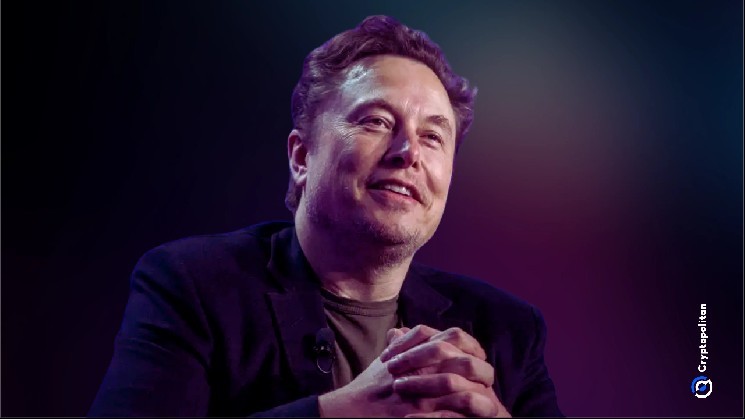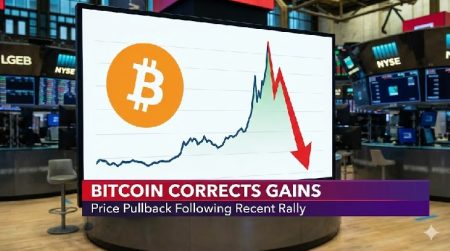Elon Musk Makes History as First Person to Reach $500 Billion Net Worth
Breaking Unprecedented Financial Milestone, Tesla CEO Pulls Far Ahead of Fellow Billionaires
In a watershed moment for global wealth metrics, Elon Musk officially became the first individual in human history to surpass the $500 billion net worth threshold on Wednesday. This extraordinary financial milestone, confirmed by Forbes’ Real-Time Billionaires tracker at 3:30 p.m. Eastern, places Musk in uncharted territory on the wealth spectrum, establishing a staggering $150 billion lead over his nearest competitor, Oracle co-founder Larry Ellison. The achievement comes just months after Ellison temporarily overtook Musk in the wealth rankings, a position the Tesla CEO has now reclaimed with decisive magnitude.
This historic financial landmark arrives less than a year after Musk crossed the $400 billion threshold in December, making his ascent to the half-trillion mark remarkably swift by any measure of wealth accumulation. The milestone positions him precisely halfway toward becoming the world’s first trillionaire, a concept that seemed purely theoretical until Musk’s meteoric wealth trajectory of recent years. Wednesday’s accomplishment coincided with a nearly 4% surge in Tesla stock, which single-handedly added approximately $9.3 billion to Musk’s fortune in a matter of hours—an amount that would independently qualify as one of the world’s largest fortunes.
The timing of this wealth explosion is particularly noteworthy in relation to Musk’s recent career decisions. In April, during Tesla’s earnings call, Musk announced his intention to step down from his advisory position in President Donald Trump’s administration, where he had been serving as head of the Department of Government Efficiency (DOGE). This strategic pivot to refocus on his corporate leadership roles has coincided with Tesla’s stock nearly doubling in value, bringing the company’s market capitalization within striking distance of its all-time high. Musk’s 12% ownership stake in Tesla now accounts for $191 billion of his wealth—and notably, this figure doesn’t even include his controversial 2018 performance-based compensation package potentially worth an additional $133 billion, which remains partially discounted in wealth calculations due to ongoing legal challenges after being voided by a Delaware judge last year.
Tesla Board Proposes Unprecedented $1 Trillion Compensation Plan Amid Legal Challenges
While Musk’s 2018 compensation package remains entangled in legal proceedings with an appeal pending before the Delaware Supreme Court, Tesla’s board of directors has moved forward with an even more ambitious proposal. In September, the board introduced a potential new compensation structure that could ultimately award Musk stock worth up to $1 trillion before taxes and share unlocking costs—contingent upon Tesla achieving extraordinary growth targets over the next decade. This proposal includes the audacious goal of Tesla multiplying its current market capitalization more than eightfold within ten years, reflecting the board’s confidence in both the company’s potential and Musk’s leadership.
Addressing the proposed compensation plan, Musk emphasized on his social media platform X that his motivation transcends mere financial gain: “It’s not about ‘compensation,’ but about me having enough influence over Tesla to ensure safety if we build millions of robots. If I can just get kicked out in the future by activist shareholder advisory firms who don’t even own Tesla shares themselves, I’m not comfortable with that future.” This statement underscores Musk’s focus on maintaining strategic control over Tesla’s long-term technological direction, particularly as the company expands beyond vehicle manufacturing into robotics and artificial intelligence—domains with profound implications for humanity’s future.
The extraordinary wealth milestone Musk has reached isn’t solely attributable to Tesla’s performance, but rather reflects his strategically diversified portfolio of groundbreaking ventures. SpaceX, the aerospace company Musk founded in 2002 with the ambitious goal of making humanity multiplanetary, has seen its private valuation surge to $400 billion as of August—a $50 billion increase from its December valuation following a recent tender offer. Musk’s 42% ownership stake in SpaceX contributes approximately $168 billion to his net worth, according to Forbes calculations. Additionally, his artificial intelligence venture xAI Holdings, which merged with his social media platform X (formerly Twitter), is currently valued at $113 billion. Musk’s 53% ownership of this combined entity adds another $60 billion to his wealth portfolio, creating a financial ecosystem unparalleled in both scale and technological significance.
From Millionaire to Half-Trillionaire: Tracking Musk’s Unprecedented Wealth Acceleration
The acceleration of Musk’s wealth accumulation represents perhaps the most remarkable financial trajectory in modern history. Just five years ago, in March 2020, Musk’s net worth stood at a comparatively modest $24.6 billion—a figure that would still place him among the world’s wealthiest individuals but nowhere near the unprecedented heights he has since achieved. By August of that same year, propelled by Tesla’s extraordinary stock performance during the pandemic, Musk became just the fifth person in history to amass a $100 billion fortune. The pace of wealth accumulation only accelerated from there, with Musk claiming the title of world’s richest person in January 2021 upon reaching $190 billion, then joining the exclusive $200 billion club alongside Jeff Bezos and Bernard Arnault later that year in September.
The truly remarkable phase of Musk’s wealth expansion began in late 2021, when he crossed the $300 billion threshold in November, a figure that seemed to push the boundaries of plausible individual wealth. Yet just three years later, Musk has added another $200 billion to his fortune, reaching the once-unimaginable $500 billion mark. This wealth progression reflects not just the financial success of his companies but the market’s extraordinary valuation of his vision and leadership across multiple industries central to humanity’s future—sustainable energy, space exploration, transportation, and artificial intelligence. As Musk stands alone at this unprecedented financial summit, the question naturally arises: what are the implications of such concentrated wealth and technological influence in the hands of a single individual, and what might be possible as his ventures continue to develop technologies with transformative global potential?
The $500 billion milestone represents more than just a number—it symbolizes a fundamental shift in the scale of individual wealth possible in the modern technological era, where visionary entrepreneurs building companies addressing humanity’s most significant challenges can achieve financial resources previously reserved only for nations. Whether Musk ultimately becomes the world’s first trillionaire remains to be seen, but his current trajectory and the ambitious growth targets set for his companies suggest the possibility cannot be dismissed. As his wealth continues to evolve in tandem with his companies’ technological advances, Musk’s financial journey remains as closely watched as the revolutionary products and services his enterprises are developing.















